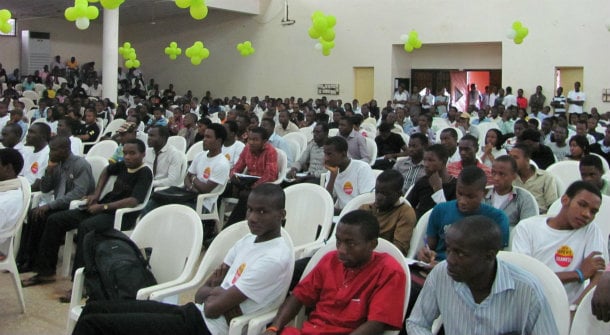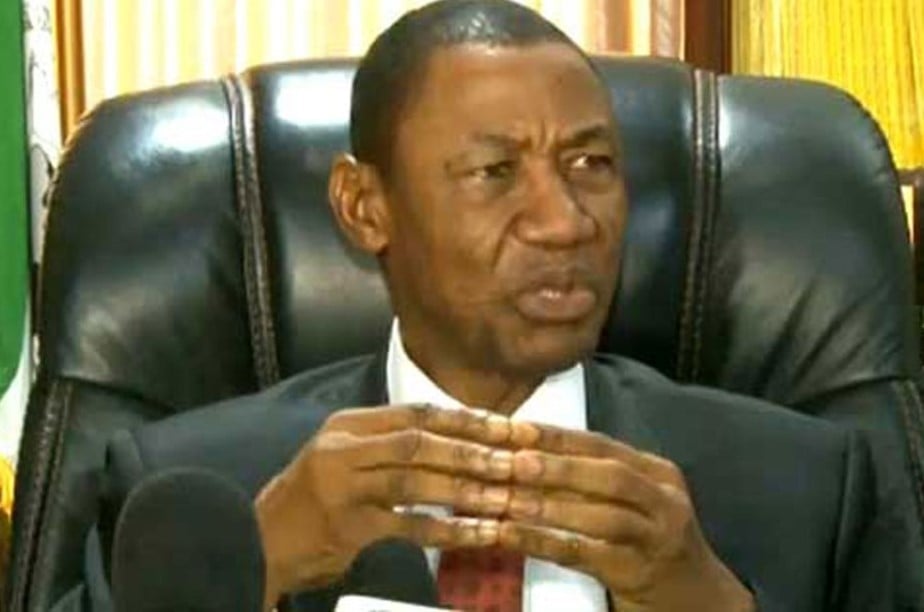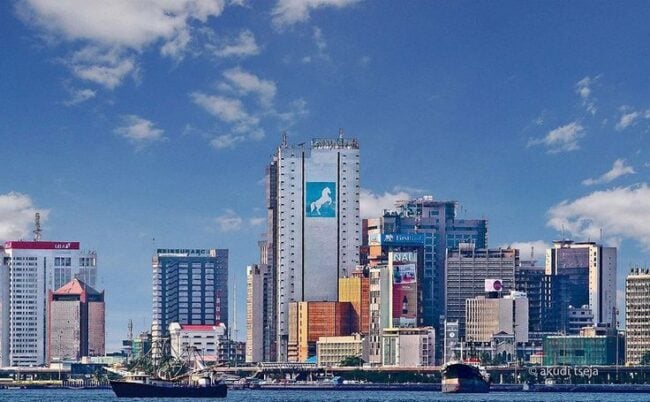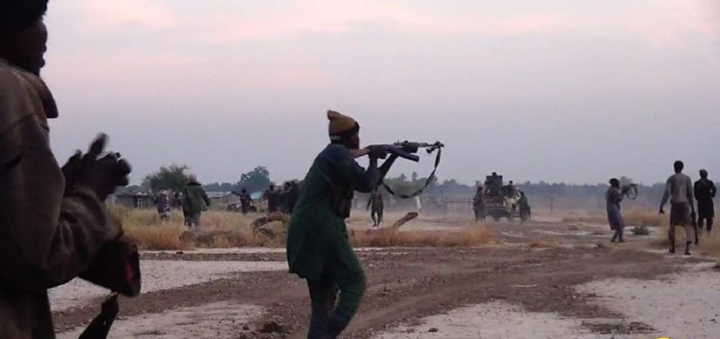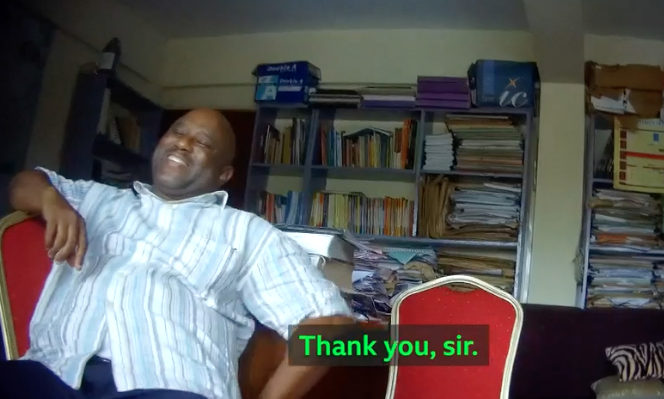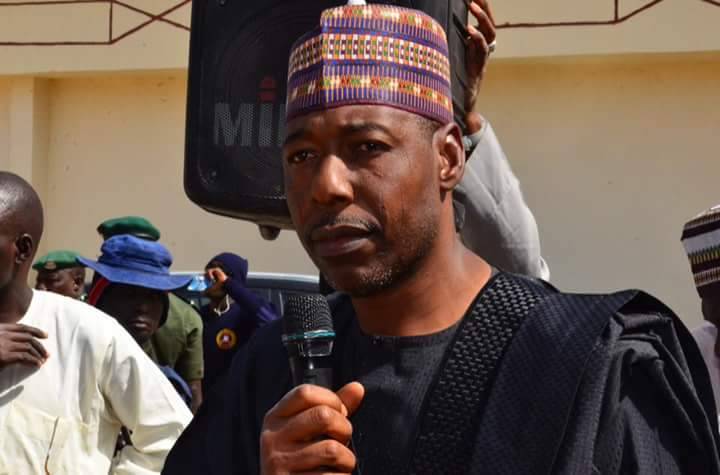It is indeed a delight to stand before this august assembly as the special guest speaker on the historic 9TH Chief Emeka Anyaoku Lecture Series on Good Governance instituted in honour of one of the most illustrious sons of Nigeria, nay Africa, Chief Emeka Anyaoku,Chief Emeka Anyaoku, CFR, former Secretary General of the Commonwealth of Nations; the only Nigerian to attain that lofty height so far.
The Lecture Series, in my understanding, is a noble attempt to relive and teach the the leadership and towering governance ideals of the great international civil servant who put Nigeria on the global map by demonstrating what can be conceived and attained as the zenith of the Nigerian possibility once generational opportunities are not imperiled. The importance of this Lecture series is also clearly underscored by the fact that 8 different states in Nigeria eagerly took turns to host the event since its commencement about nine years in Lagos State when my friend and brother, Raji Fashola, as governor, jumpstarted the Emeka Anyaoku lecture series.
Today’s event being the 9th in the unbroken chain is hosted by the Imo state government and focuses broadly on the strategically important theme of “Youth and the Challenges of National Development”. I totally agree with the focus on the youth and their role in national development. Given the multiple leadership challenges that are currently overwhelming the managers of statecraft; challenges that are rapidly destabilizing and subverting the nation’s foundational political, economic, geopolitical and moral core let us, at least, prepare the upcoming ones for a better and more promising future. In this vein also to encourage them to make a concerted effort in avoiding facing to a future time whose zeitgeist is bound to be bleak unless they solemnly and determinedly rise to the occasion today.
Establishing a nexus between the Youth and the Imperatives of Good Governance and Sustainable National Development- my very modest refunctioning of the event’s thematic trajectory- and prescribing a pathway for the youth to better fulfill their role of taking over from a generation already embarrassed by its underwhelming encounter with history, is the simple task that I understand my assignment to be. I shall attempt to lare bare the facts of national circumstances as I see and know them; and to examine them with fidelity to truth and commonsense on the expectation and hope that both we and the Nigerian youth will find some of my postulations useful however impassioned they may appear.
Advertisement
The Nigerian public spheres are awash with visible and hidden intimations of generational leadership failings; facts and realities that bear no esoteric hue and that do not require the understanding and interpretation of experts and professionals of various callings. The failures of our time may translate into the complete failed status of the nation state if we fail to do the needful. The first malady describes the incompetence and indolence of a sizable proportion of the governing elite; the second, the confluence of expanding ungoverned spaces, multiplying levels of criminalities, new and old, dysfunctional and disarticulated economic sub-structures, mass poverty and youth unemployment as well as the unraveling of the nation’s fragile sectarian and ethno-cultural core, all tragically coming together in a historical time such as is heavily upon us now.
The fact remains: the nation handed over to us by the founding fathers has not fared any better; its historicist spirit is waning; the sense of nationness and national belonging are evaporating like as insolent mirage; while the vicious cycle of underdevelopment- across several frontiers- confronting us today derives essentially from bad governance and leadership deficits. In a sense therefore, while it was right for the radical Afrocentric scholar like Walter Rodney to declare with historical fidelity and moral authority about how Europe underdeveloped Africa, for me the testament of contemporary era is nothing but how poor, unaccountable and visionless leadership underdeveloped Nigeria.
GOOD GOVERNANCE
Advertisement
To me therefore Good governance, Leadership and National development are intertwined. To understand a nation’s underdevelopment, simply take a closer look at the level of good governance at play and the leadership driving it. Exceptional Leadership (positive leadership) and Toxic Leadership (negative leadership) account for development and underdevelopment of any nation. Histories of nations are essentially stories of men and women who have led them, how they led them, how the masses responded to them and the indelible positive and negative marks and imprints that they left as legacies.
Toxic leadership, which is the kind of leadership that leaves a place worse than it met it, for example, can only set a nation or an organization backward while exceptional leadership will do exactly the opposite. So, if our nation Nigeria has been retrogressing in quantum leaps and bounds to the point that all the basic justifications for the establishment of government have all been eroded and outsourced back to the citizens at their own peril and cost, it goes without saying that Nigeria has been saddled with toxic leadership more than exceptional leadership over time. That was exactly why the provisions of most basic social amenities, especially electricity, now appear more like rocket science to Nigerian governments.
Permit me delve into Good governance a bit, which I believe is key to unlocking the understanding of national development. Good governance results in national development, so to understand the latter, you need to take your bearing from the former. Good governance is the process while National development is the end product. Though subjective to a considerable extent, Good governance is not an abstract concept or construct. Good governance are the processes and interrelated procedures through which government institutions produce results that meet the needs of society while making the best use of resources at their disposal. The concept of efficiency in the context of good governance also covers the sustainable use of natural resources and the protection of the environment.
The benefits of good governance are reflected in all institutions that demonstrate Integrity in appointments at all levels, both external and internal, and strong leadership and management skills in all of the places where they are needed. These institutional qualities are performance, adaptability, and stability while the principal governance principles are participation/inclusion, non-discrimination/equality and rule of law/accountability.
The indicators of good governance are basically:
• Voice, empowerment of civic spaces and accountability.
• Political stability and absence of violence.
• Government effectiveness.
• Regulatory quality.
• Rule of law.
• Control of corruption
Advertisement
I need to emphasize why government accountability is important and can only be ignored to the peril of any given polity. Accountability is important in evaluating the on-going effectiveness of public officials or bodies and ensures that they are performing to their full potential, providing value for money, instilling confidence in the governed, being responsive to the community and seen to be increasing citizens participation in fostering good governance processes. Good Governance and Democracy are interchangeable in mutual affinity.
Good governance has 8 major characteristics. It is participatory, consensus oriented, accountable, transparent, responsive, effective and efficient, equitable and inclusive, and follows the rule of law. Good governance is responsive to the present and future needs of a country, exercises prudence in policy-setting and decision-making, and in the context in which the best interests of all citizens and critical stakeholders are taken into account.
Here are some of the elements of good governance in a democracy without which national development is not possible.
Number one factor is Rule of Law. Good governance requires fair legal frameworks that are enforced by an impartial regulatory body, for the full protection of citizens and stakeholders. The quintessence of the principle of separation of powers as advanced by the French philosopher Montesquieu, does not permit that the 3 arms of government on presidential democracy will be concentrated in an individual or in a single arm. Otherwise it becomes a dictatorship or fascism. Or, at best an oligarchy. Question is: can we say that rule of law obtains in today’s Nigeria? You know the answer better than I do. Let me warn that while a military dictatorship is deplorable and is constantly called out and resisted, an illiberal authoritarian order that masquerades as a democracy is as dangerous as it for the simple reason that the world would not hold it complicit in the erosion of civil liberties and human rights.
Advertisement
Another crucial factor is transparency. Transparency means that information should be provided in easily understandable forms and media; that it should be freely available and directly accessible to those who will be affected by governance policies and practices, as well as the outcomes resulting there from. It also implies that decisions taken and their enforcement are in compliance with established rules and regulations. Accountability has been treated by successive governments in Nigeria, including the present one, as a prerogative and an exclusive preserve of those in government. This has severely affected the fight against corruption, which has inadvertently led to been dubiously selective as well as being shrouded in mystery with regard to the amount and properties recovered from corrupt persons and organizations. The fight against corruption has been reduced to subterfuge and everything else about the fight is now tainted with politics, and leaves the citizens to speculate about government intents and motives.
Responsiveness is yet another factor. Good governance requires that organizations and their processes are designed to serve the best interests of citizens within a reasonable timeframe. We can then ask: even with Servicom Act in operation, which government institutions are really working optimally for the satisfaction of citizens, ranging from the security agencies to the service sector?
Advertisement
Good governance also requires wide consultations to understand the different interests of stakeholders in order to reach a broad consensus of what is in the best interest of the entire stakeholders and citizens, and how this can be achieved in a sustainable and prudent manner. In a democracy, a responsive government does not draw up a programme such as RUGA and shove it down the throat of citizens without proper and intense broad based, all-stakeholders consultation. Such a programme, no matter how laudable the intent might be, will be resisted by broad segments of the population as is the case with the RUGA programme.
Perhaps the most crucial factor underpinning Governance and National development in a pluralistic entity such as Nigeria is Equity and Inclusiveness. Psychologist David McClelland postulated that the surest way to destroy a place is through a segregatory policy, which treats citizens differently. This is expert opinion borne out of decades of research. One can easily see why Nigerians are growing more and more divergent under the present administration where the President seems to have made good his promise to persistently treat the 97 percenters and the 5 percenters unequally. The government that provides the opportunity for the citizens to maintain, enhance, or generally improve their well-being provides the most compelling message regarding its reason for existence and value to society.
Effectiveness and Efficiency is what directly give rise to national development. Good governance means that the processes implemented by the government to produce favorable results that meet the needs of the citizens, while making the best use of resources – human, technological, financial, natural and environmental – at its disposal.
Advertisement
Apart from mediocre individuals running the show in many critical sectors of the Nigerian economy, round pegs in round holes is also not the practice as such in our clime. What currently obtains in Nigeria today is regarded by Psychologists as Muddling Through – a country of any goes! Incestuous and nepotistic appointments, especially in critical sectors needed to ensure national development, have not permitted Effectiveness and Efficiency and without Effectiveness and Efficiency, national development has remained an empty dream in Nigeria.
NATIONAL DEVELOPMENT
Advertisement
National development is profoundly intertwined with democracy and democracy is about participation. Participation by both men and women, young and old, either directly or through legitimate representatives, is a key cornerstone of good governance. Participation needs to be informed and organized, including freedom of expression and assiduous concern for the best interests of the organization and society in general. In Nigeria free and fair election is still a forlorn dream and each successive election seems to be worse than the one preceding it rather than an improvement.
The 2019 General elections have not inspired confidence that Nigerian democracy is deepening organically and gaining root, from the messy, fraudulent primary elections in the major parties to the outright theft of people’s mandates in the charade that went by the name of general elections. The EU, IRI and NDI observation missions reports attest to this shabby reality.
From the gamut of factors, some issues stand out as the main yardsticks for measuring Good Governance and National development. To Improve Governance and enhance National development, we just have to work on those factors.
Basically and specifically, National development refers to the ability of the nation to improve the lives of its citizens. Some of the measures are increase in gross domestic product, improving literacy rates, improving medical facilities, etc. Development, on its own, is a process that creates growth, progress, positive change or the addition of physical, economic, environmental, social and demographic components to the positive transformation of society.
An economy in which jobs are not being created is not developing or growing. That is why the objectives of national development is economic development, which in essence is improving the material standards of living by raising the absolute level of per capita income. Raising per capita income is also a stated objective of policy of the governments of all developing countries, including Nigeria. Economist Michael Todaro specifies the critical objectives of development: Life sustaining goods and services; that is to increase the availability and widen the distribution of basic life-sustaining goods such as food, shelter, health and protection.
Let it also be known that the most important attribute of national development is Income per capita. The ultimate aim of development is not only to create more wealth or achieve higher economic growth, it is also to expand the range of choices for every human being. The extent to which a country has developed may be assessed by considering a range of narrow and broad indicators, including per capita income, life expectancy, education, and the extent of poverty.
With Nigeria today adjudged the poverty capital of the world, rightly or wrongly; with North East Nigeria adjudged by United Nations agency as the concentration of world’s most illiterate populations; and with Nigeria also adjudged to be hosting the highest number of out of school children in the world, national growth and development is still far from what we expect and what it ought to be!
Truly, if we consider Nigeria’s Human Development Index (HDI), which is the statistic composite indicator that is used to rank the levels of development among countries and its classifications into three components, namely, life expectancy at birth and throughout a lifetime life, and Standard of living (GDP/GNI per capita), you will agree that our rating may not be far from the truth. The term national development is therefore very comprehensive. It includes all aspects of the life of an individual and the nation. It is holistic in approach. It is a process of reconstruction and development in various dimensions of a nation and development of individuals.
It includes full-growth and expansion of our industries, agriculture, education, social, religious and cultural institutions. Moreover, national development implies development of a nation as a whole. It can be best defined as the all-round and balanced development of different aspects and facets of the nation viz. political, economic, social, cultural, scientific and material. This is precisely why John Vaizey, a noted economist defines national development as the total effect of all citizen forces and addition to the stock of physical, human resources, knowledge and skill. United Nations Decade Report equally defines it as growth plus change which in turn is social and cultural as well as economic and qualitative as well as quantitative.
Broadly, development of the nation encapsulates the above functional parameters which Nigerian youths must understand, appreciate and apply in their individual and collective involvement in the life, times and destiny of the nation, both in this era they are currently marginalized and in a future time they are told they must lead:
(i) Development through a planned national economy,
(ii) Increase in agricultural production through application of modern technical know-how,
(iii) harnessing industrial production,
(iv) Development of human resource,
(v) Application of science and technology in production sector,
(vi) Provision of mass education and
(vii) Provision of various facilities to meet the needs and aspirations of disadvantaged, deprived and poorest of the poor segments of population.
These are the some of the problems of national development, which the Nigerian youth need to grapple with:.
THE NIGERIAN YOUTH, GOOD GOVERNANCE AND NATIONAL DEVELOPMENT
There are significant points of intersections between the Nigerian youth and our prevailing discourse on good governance and the imperatives of national development. I will be examining them briefly now to properly contextualize the promise place and promise of the younger generation in a political geography significantly undermined by the present crop of leaders.
1. All my constructs above on good governance and national development will be meaningless unless the assets, endowments and environmental realities of the youth are factored in. The political and economic survival of any nation relies on its ability to cope with the challenges of the 21st century and these are to be seen in the areas of new media/ social media, artificial intelligence, robotics and ICT driven new knowledge systems. These are areas of endeavour the promise and possibility of the Generation X converge; that is a dynamic and increasingly complex youth generation with its technical acumen and technological savviness. To what extent, if I may ask, are the operators of the Nigerian political and corporate crafts aware of this reality and coherently planning for mainstreaming the youth into its challenging domain?
2. The Nigerian existing and exploding youth bulge is a paradox in pushing the contours of good governance and national development deep into the 21st century and beyond. The youth bulge is not only a Nigerian challenge but also an African reality. It can herald and channel the promise and possibility of the current and future times for greater positive national political and economic transformation or it may be the engine that will accelerate the dissolution of the nation if not well managed, and here I speak terms of youth unemployment, poor educational systems and curricular that adversely affect their employability apart from out of school and poorly educated youth, and acute lack of political and economic opportunities and social and cultural access
3. What are the drivers of youth restiveness, militancy, extremist agitation, political thuggery, organized criminalities and formation of criminal gangs, and cross border terrorism?- because if the truth must be told, over 90% of those involved in the above listed activities are Nigerian youth. Why are Nigerian and other youth easy recruits for the Boko Haram, violent cross border herdsmen, Niger Delta militants, IPOB, OPC, YOLICOM and other separatist agitational groups? And how far Nigerian youth help in further expanding, strengthening and consolidating the new frontiers of good governance and national development given the above negative societal headwinds and the generational headwinds I cited in 2 above?
4. On the salutary side, I consider the Not Too Young To Run as a breakout legislative moment for the political empowerment of the Nigerian youth and the beginning of the long journey that will see Nigerian youth mainstreamed and strategically centered into the nation’s good governance and national development calculus. A strategic approach, all- stakeholder approach is thus required in building on that legislative accomplishment to create more youth access to political power, political inclusion, participation in a youth friendly operating political space, and the secure presence of youth in both political and corporate governance of the nation state
5. As a corollary of the above I want to underscore the fact that Nigerian youth has a huge role to play in growing the nation’s civic spaces and re drawing its corporate governance model to be more aligned to the complex knowledge formation and utilization systems of the 21st century which I pointed out above. They can do this through structures that help in empowering visions, deepening social and cultural dialogues, enabling inter-generational conversations, opposing oppressive conditions and bad governance, engaging in sustainable networking that grow businesses and start up industries, and of course participating in global citizenship enterprises from politics to economics and from culture to civic spaces responsibilities.
6. It is equally imperative for me to interrogate the prism through which the Nigerian youth is viewed going by my discourse on good governance and national development. Is it from the prism of moral decadence and multiplying layers of social and other vices, internet fraud which reflect the moral decrepitude of the elite, or from the prism of outstanding successes of Nigerian youth at home and abroad in fields as far flung as literature and creative writing where Nigeria is currently leading the entire globe, winning educational competitions, growing startup businesses into global brands and spectacular competences on education and corporate engineering. For the sake of the future survival of the nation, I want to use this forum to compel our national vision in the direction of the LATTER and not the FORMER prism, to impel ideas that incubate and affirm that vision and adopt uncommon creative approaches for the realization of the promise and possibility of the Nigerian youth, and through that to guarantee the survival and future viability of the nation state.
CONCLUSION
I am almost done! Let me end that the fate of the Nigerian state and the Nigerian youth is intertwined. One cannot survive without the other! For both to survive we must begin the task of evolving and deepening a national philosophy, a national ideology and a national value system that harnesses the positive mindset of national exceptionalism but without the limiting circumstances and negative attributes of essentialist thoughts. If we develop these attributes in our political parties and social and cultural unions; and if we mainstream them into our political governance model and national developmental strategies Nigeria and her youth stand a chance of surviving the future- not a great chance given the level of meaningless decay and national drift that daily confronts us- but at least a fighting chance to escape the trap of history occasioned by the monumental wastage of the contemporary ruling generation.
Thank you for listening!
Being a speech Sani delivered as a special guest at the 9th chief Emeka Anyaoku annual lecture series on good governance held in Owerri, Imo state, on October 3, 2019
Views expressed by contributors are strictly personal and not of TheCable.
Add a comment

